
The North Korean nuclear threat
North Korea has recently demonstrated it “deadly nuclear counterattack capability” amid ongoing US-ROK joint military exercises meant to show the strength of US extended deterrence.
The rising nuclear tensions in the Korean peninsula represent an element of instability in the geo-maritime space of the East China Sea, affecting countries with special interests in the Northwest Asia-Pacific, such as China, Russia, the United States (US), Japan and South Korea.
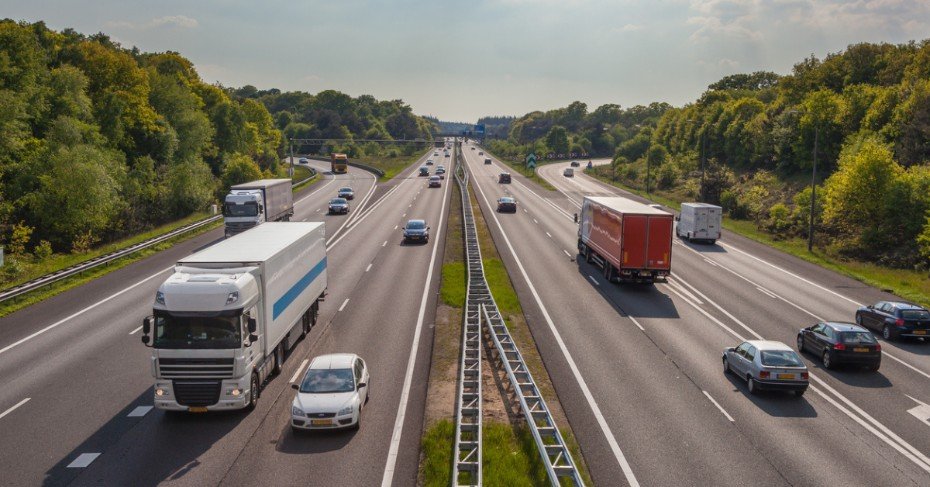
The seasonality of cargo theft: peak shipping season and opportunity as a driver of crime
With the peak shipping season approaching, logistics operators are advised to remember that the end of the year brings many distinctive challenges, including a much higher threat of falling victim to cargo theft than during the rest of the year.
The dynamics of cargo theft are influenced by many factors, not the least of which is time. In fact, the existing evidence highlights several temporal patterns.

A tale of two seas: the Gulf of Aden and the Persian Gulf
The ongoing truce in Yemen has kept a lid on tensions in the Gulf of Aden where the threat situation is stable. In the Persian Gulf, however, an elevated threat of Iranian actions – which could affect merchant traffic – should be noted.
The truce between the warring factions in Yemen remains in place, despite a lack of recent progress in the ongoing peace talks. There are a number of barriers to further progress, not least the issues of government revenue and the sharing of returns from oil exports.

Maritime terrorism effectively suppressed in Asia
Robust anti-terrorism initiatives aimed at the suppression of terrorist acts on land and at sea in Asia have been effective, however, continued radicalisation and extremism requires continued vigilance.
At 18:40 local time on Sunday, 18 December 2022, the Myanmar passenger ferry CHERRY 2 departed from her berth with hundreds of passengers on board to cross the Yangon River. Only fifty metres from the berth an improvised explosive device exploded, ripping through the lower deck.

Algeria’s diplomatic return
Algeria is seeking to reclaim its diplomatic primacy as a changing world risks making its policies obsolete. It is difficult to assess what shape Algeria’s new diplomacy will take, or whether it will shed its long-standing non-alignment policy.
Algeria is seeking to return to its historical role as a respected diplomatic actor. Prior to its “dark decade” during the civil war in the 1990s, the 43-million strong North African country was held in high regard for its “wise realism” approach to foreign policy.

Black Sea - Turbulent waters
The Black Sea Grain Initiative ended on 17 July, following the announcement by Russia that it would not agree to a new extension. The Black Sea Grain Initiative is therefore no longer in effect. Subsequently, first Russia then Ukraine announced that vessels bound for their Black Sea ports, would be considered as possibly carrying military cargo and therefore as parties to each – rendering vessels as potentially legitimate military targets.
Russia has long expressed its dissatisfaction that not enough was done to facilitate the exports of its own fertilizer products, as part of the initiative and stressed this as the reason for withdrawing from participating in the initiative.

Corruption in European ports: a growing phenomenon inextricably linked to illicit trafficking at sea
As most illegal goods transit by sea, ports play an essential interface role before the goods reach their destination. To this end, criminal groups have had to infiltrate ports, particularly European ones, to move their illicit shipments, reminding us that the human factor plays a central role in this traffic.
Ports act as an interface and interaction point between sea and land, where ships, crews and logistics teams, and private sector and state agencies meet and cross paths, involving a large number of different actors, depending on the size of the port.

China and U.S. relations: competitive and contentious
For the past 40 years, China-U.S. ties have been complicated. Since the diplomatic connections between the two countries were established in 1979, the relationship between the two has gone through several stages, gradually developing into diplomatic, commercial, and most recently, security relations.
The relationship, however, has grown more competitive and contentious in recent years, with U.S. concerns over China's military modernisation initiatives, border disputes in the South China Sea, and its expanding influence in the Asia-Pacific area.
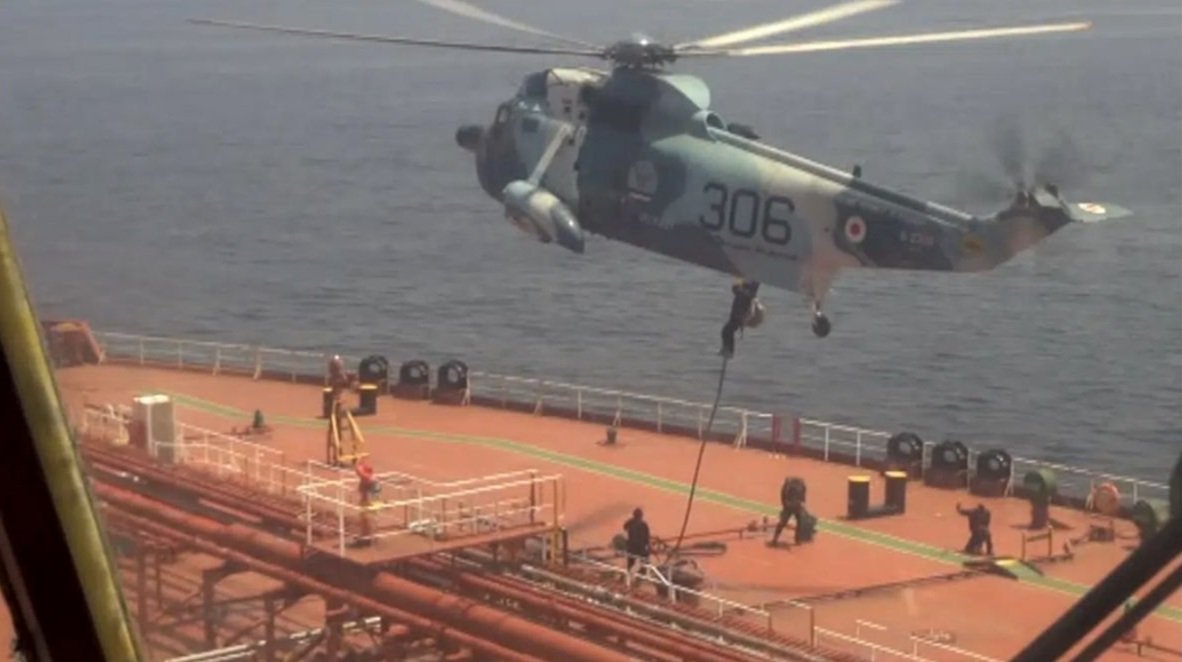
Merchant vessel detentions and Iran’s policy goals
The seizure and detention of three tanker vessels by Iran in separate incidents in late April and early May 2023 has once again thrown the spotlight onto this particular threat in the Gulf of Oman and Persian Gulf area.
Vessel detentions have been used by Iran for broadly three policy goals. Each of these goals is influenced by regional factors, particularly the international sanctions under which Iran’s oil exports take place.
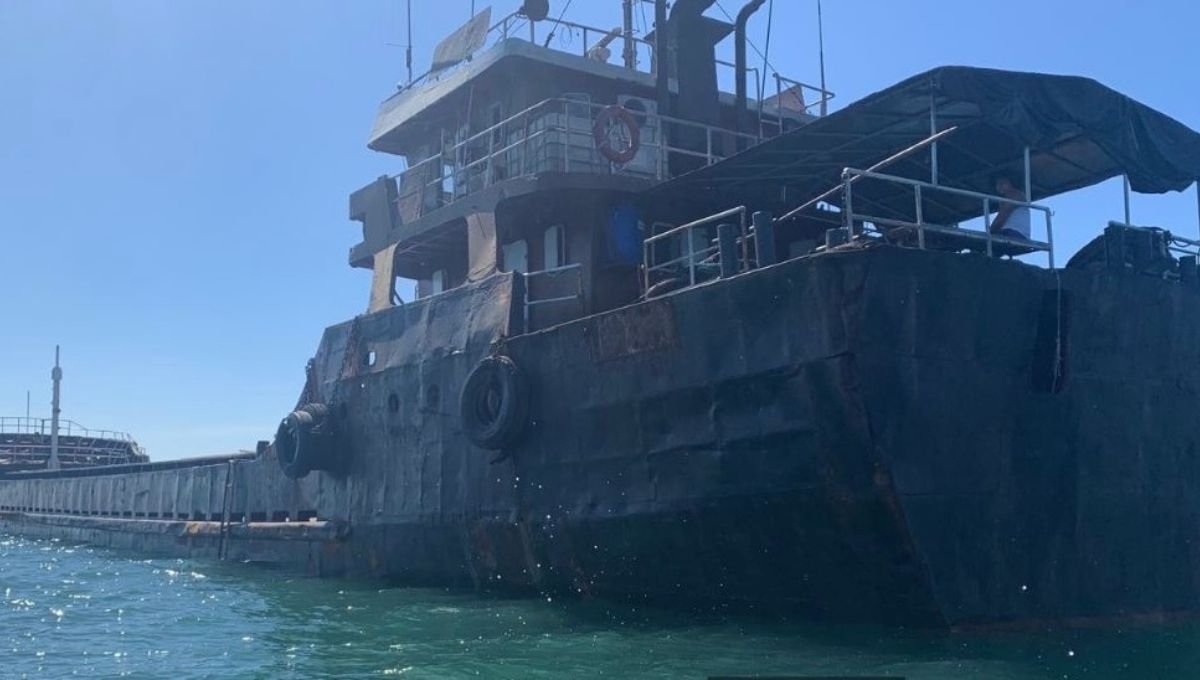
South-East Asia’s dark fleet and the consequences for legitimate traders
While there are well known consequences to the marine environment that can result from unauthorised ship-to-ship transfers, another consequence is the threat of innocent vessels being penalised as a result of sanction busters broadcasting false vessel identification details.
Tankers performing unauthorised ship-to-ship liquid cargo transfer operations in clandestine efforts to circumvent a range of sanctions not only pose a threat to the marine environment, but their efforts to mask their activities by concealing the true identities of the vessels involved can also impact vessel operators conducting completely legal business.

Risk analysis and the threats facing European logistics
European logistics operators continue to be confronted with numerous security threats with the potential to seriously disrupt their operations. Alongside cargo theft, recent data from the Risk Intelligence LandRisk Logistics’ System highlight violent robberies and the ever-more numerous protests from climate activist groups as some of the most important at present time.
The past year has seen an unprecedented rise in climate activism-related actions in Europe. Campaigns aiming to block traffic on motorways and city centres have been widespread, particularly in the United Kingdom and Germany.

Corruption and drug trafficking in European ports
Maritime transport remains a method favoured by Organised Crime Groups (OCGs) involved in transporting prohibited goods and, in particular, drugs. A recent upkeep in seizures in European ports highlights the fact that these are particularly targeted by OGCs, who widely rely on the corruption of insider personnel to enable their criminal activities.
Over the last decade, the use of container shipping to transport illicit drugs to Europe has significantly increased. In particular, seizure data indicates that the vast majority of the cocaine sold on the continent since the mid-2010s was smuggled through its major container ports
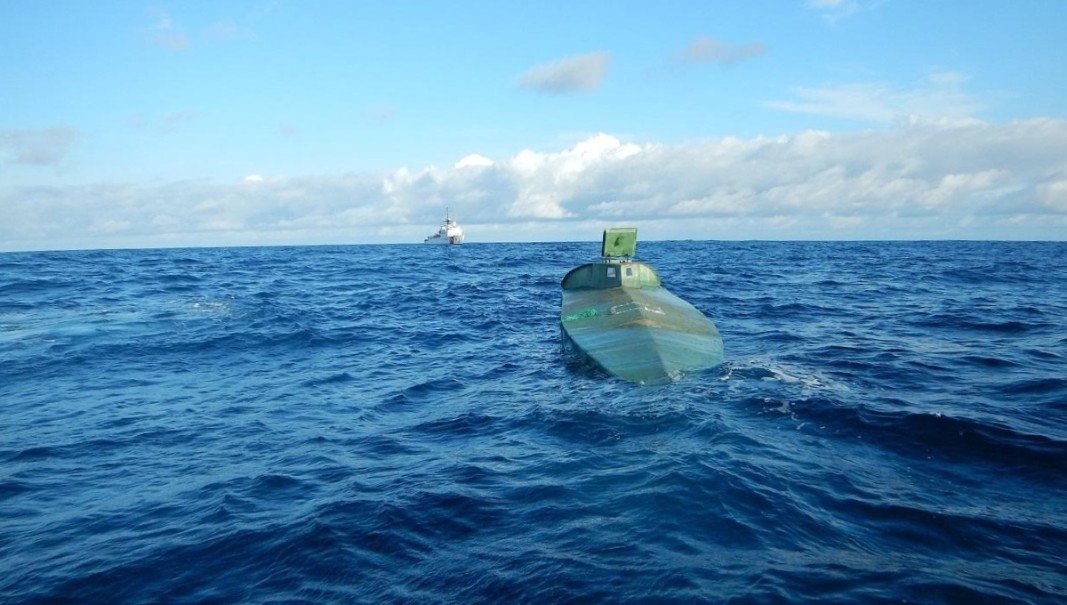
Transit of cocaine trafficking in the Atlantic
In the fight against cocaine trafficking through the Atlantic Ocean, Navies and drug enforcements agencies must deal with ever more ingenious traffickers. While the routes taken remain similar, the types of vectors and vessels differ according to the preferred modus operandi. West Africa and its main ports are also playing an increasingly important role in this traffic, where the region is becoming a redistribution platform and a fast-growing consumption area.
In order to move as much cocaine as possible from the producing countries, mostly in Latin America, to the consuming countries, traffickers show ingenuity and constant innovation, constituting an adaptation challenge for enforcement agencies, navies and the maritime industry.

1 May – International Workers’ Rights Day: A reminder of Europe’s workers and their demands
Recent labour-related agitation in Europe has shown that the times in which employers could dictate wages and working conditions are over. Logistic companies continue to be directly affected by these developments, a trend that we expect to continue in the short term of the next 1-3 years.
Zooming in on recent labour-related activism in France and Germany, two key economic countries in Europe, emphasises how labour unions and ordinary workers have gained increasing power in their quest to achieve higher wages and better working conditions.

Myanmar: Political crisis continues to escalate after two years
Since the coup, the anti-regime opposition has frequently bombed and attacked military facilities. Due to the deteriorating security situation, the military declared a six-month state of emergency. In Myanmar, strikes and violence persist. Port operations are anticipated to continue as usual, despite the predicted disruptions to road traffic and businesses over the next few months.
Two years have passed since the Myanmar armed forces seized control of the government on 1 February 2021 following a general election which Aung San Suu Kyi’s party won by a landslide. Since then, the military crackdown on the National League for Democracy (NLD) has been ferocious.
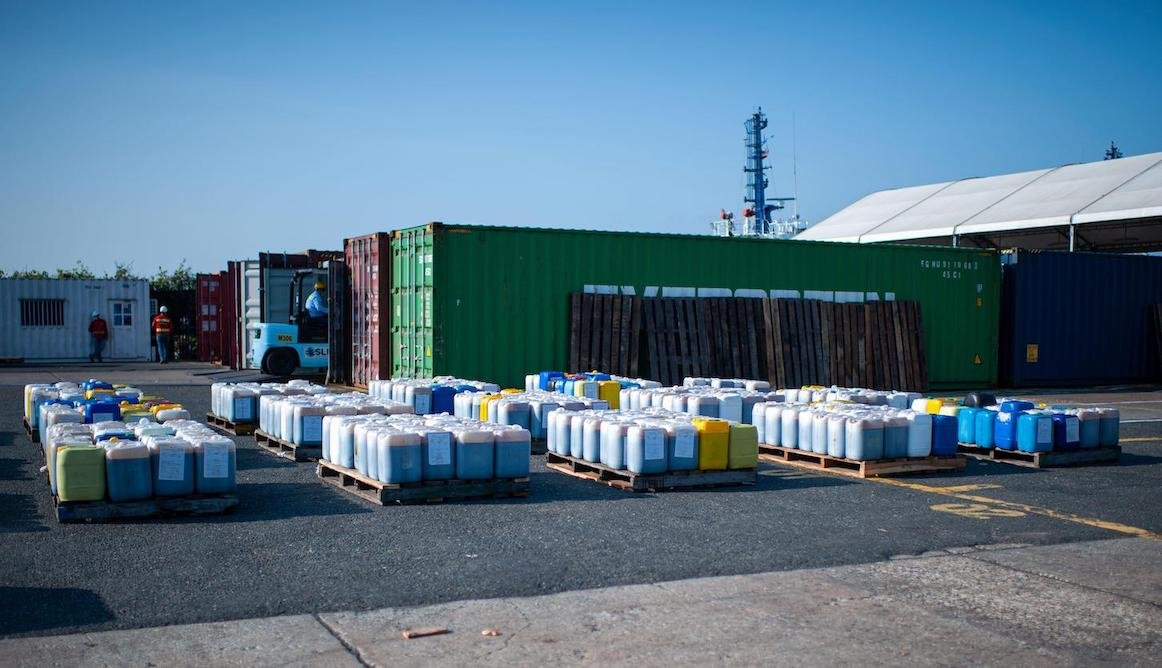
The global business of cocaine trafficking
During the last two years, the amount of cocaine trafficked from Latin America to the rest of the world has reached record levels, bringing to light new routes of interest, criminal actors, and methods of smuggling. Most of the traffic takes place by sea on cargo ships, possibly causing severe repercussions for shipping companies.
Cocaine trafficking is a huge global business worth billions of euros yearly. Since the beginning of the Covid-19 pandemic, the amount of cocaine manufactured and trafficked has increased to historical highs. More specifically, estimates show that in 2020 around 1980 tons of cocaine were produced, while in 2021 this amount increased to approximately 2675 tons.

Mass protests in France cause disruption an chaos across the country
A coalition of France’s major labour unions began a nationwide strike on 07 March to protest the French government’s pension reform. Millions of people have since been mobilised in opposition to the reform during nine nationwide and interunion strikes. The demonstrations have caused major disruptions and increasingly grow violent. An end to the strikes is currently not in sight.
The strike has caused major disruptions, particularly affecting the French transport and energy sectors. Workers of French ports have implemented several so-called “dead ports days”, in which port activity was massively disrupted and ships were prevented from docking.

Asia: The impact of activism on specific sectors
In contrast with protesters in Europe and the Americas, activists in Asia are less prone to board vessels in the offshore and oil and gas sector, but rather have focused on protecting their fisheries and target operations that pose a threat to the fish stocks.
Unlike other regions, activities of activists in Asia that target the maritime shipping sector do not generate many headlines. Lately in the shipping press one activist activity that has recently been addressed are the strikes of shipyard workers in South Korea, some of whom have conducted hunger strikes and occupied vessels under construction.

Captagon smuggling: An expanding challenge in the Mediterranean
The sharp increase in the scale of the captagon trade and the diversification of smuggling routes witnessed in recent years ought to draw attention to the potential impact of this traffic on the Mediterranean security landscape.
Produced in Syria and, to a lesser extent, the Beqaa valley of Lebanon, it is overwhelmingly destined for markets in the Gulf countries, primarily Saudi Arabia and the UAE. The amphetamine-type stimulant has recently been at the heart of significant media investigations and political debates following its reported link with, amongst others, the Syrian government and Hezbollah.

Major disruptions ahead – new French pension reform strikes
The Confédération Générale du Travail (CGT) is organising a statewide strike on 7 and 8 March 2023, to protest the French government's proposed pension reform. The statewide strike is expected to cause significant disruptions, particularly for logistics companies.
Key sectors in the French economy are expected to be affected by the nationwide strike. The railways, docks and ports and energy industries are planned to be the most disrupted, whilst chemical industries and glasses and ceramics groups have also announced their support.
